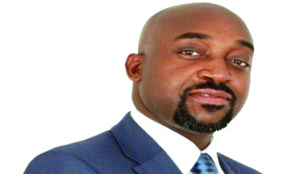By CHUSA SICHONE –
ROAD traffic accidents (RTAs) claimed more than 2,200 lives in 2016, costing Zambia’s economy over K4 billion, President Edgar Lungu has observed.
Mr Lungu says the number of fatalities, in which pedestrians accounted for 43 per cent of the dead, ranks among the highest in sub-Saharan Africa and expresses the fear that unless immediate measures are taken, the picture could get worse.
The good news is that measures taken since last year to help reduce incidents of RTAs appear to be working, with a drop of 16 per cent in cases reported in the first half of this year, compared to the same period in 2016.
In a speech read for him by Transport Minister Brian Mushimba at the 3rd national road safety conference of the of Road Transport and Safety Agency (RTSA) that opened in Lusaka yesterday, the President said a sea-change was needed in Zambia’s road safety management.
Mr Lungu directed RTSA, the Road Development Agency (RDA), Zambia Police Service (ZPS) and other partners in the sector to develop an integrated national road safety programme covering the short and long-term objectives to deal with the problem.
“Statistics show that Zambia has one of the highest numbers of road crashes in the Sub-Saharan African continent. You may wish to note that in 2016, over 2, 200 people were killed on our roads as a result of road traffic crashes.
“We estimate that road traffic collisions cost the Zambian economy in excess of K4 billion in 2016. This figure may rise if we don’t put our efforts together to reverse the rising trend in road crashes.”
President Lungu said Government was concerned that nearly 43 per cent of the fatalities were pedestrians and it could not sit back and watch lives being lost.
He said the Government had prioritised road safety as safer roads and safer road users saved lives and they also helped to reduce pressure on the country’s health systems and emergency services, ultimately keeping the economy growing.
He attributed the 16 per cent reduction in accidents reported in the first half of 2016 over last year to a number of short-term interventions, like the ban on night driving imposed on public service vehicles.
An integrated national road safety programme involving major stakeholders could improve the situation even further in the interest of vulnerable road users, like pedestrians and cyclists.
It is in the light of this that the proposed Lusaka-Ndola dual carriageway comes in handy.
The President also wanted the vulnerable road users to be protected through building safer roads and promoting safer road user behaviour, taking tough action against motorists who drink-drive, exceed the speed limit, take drugs or use mobile phones on the road and drunk walking on highways.
President Lungu said the programme should also ensure that the driver testing and training regime prepared new drivers for a wide range of real life driving conditions and situations, reviewing the nation’s road safety management capacity, among other focus areas.
RTSA chief executive officer Zindaba Soko said 13,446 fatalities were recorded between 2010 and 2016 in road traffic accidents, which were the third leading cause of death in Zambia after malaria and HIV/AIDS and that about 1, 920 people die annually in Zambia via road carnage.
RTSA Board chairperson Webster Nonde said the Agency would be implementing the Road Safety Management System whose key objective was to reduce on road traffic accidents and that would further increase the number of RTSA outlets countrywide to improve service delivery and operational efficiency.







